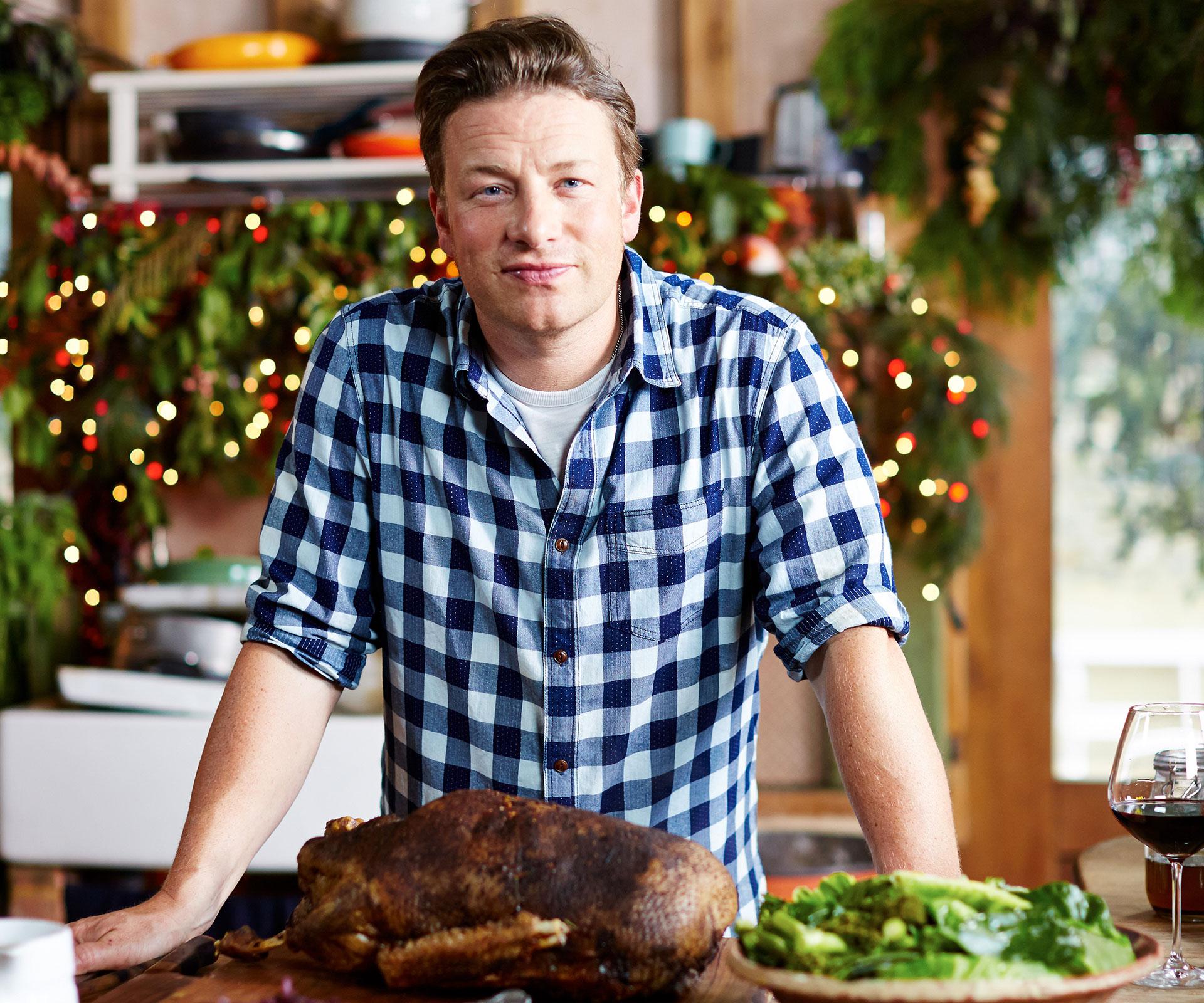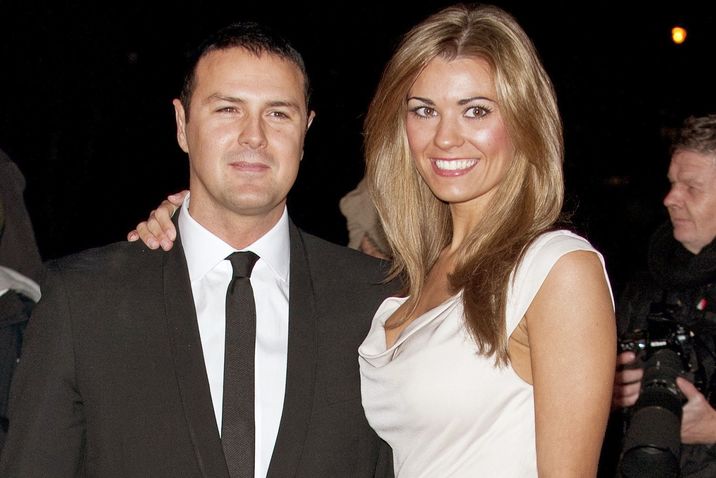She’s worked in Israel with rockets landing just feet away and reported on the first Christchurch earthquake with her hometown in tatters around her – but it was the recent news of her mother Gill’s lung cancer that truly shook Melissa Stokes to her core.
“I feel like in some way I had to grow up. Even now, it is Dad who organises my flat tyres and takes care of things, but everyone was a little at sea so I thought, ‘I have to step up here,’ which still feels quite unusual, even though I am 38,” says Melissa, who is standing at her kitchen bench squeezing in a chat before her sons Hugo, five, and Freddie, three, get home from school and preschool.
After her mother’s lung cancer diagnosis on September 1 last year, the TVNZ presenter began writing a diary in an attempt to process the overwhelming emotions she was experiencing while they waited for answers about treatment options. She published that diary in a national newspaper in March and says the response was overwhelming.
“I think I underestimated how many people would send me their stories. For the week after, I had that heavy feeling in the eyes from crying so often – I felt quite exhausted.
“I never really feel strongly about putting myself out there, then I thought, ‘You know what, I am going to,’ because this really tore me apart and there are going to be other people like that too.”
The memory of the weeks following the hospital visit that turned her family’s world upside down is still fresh. Once the Stokes family had processed the shock that Gill had cancer, they clung to the hope that the 4.5cm tumour on her lung had not spread and was therefore operable.
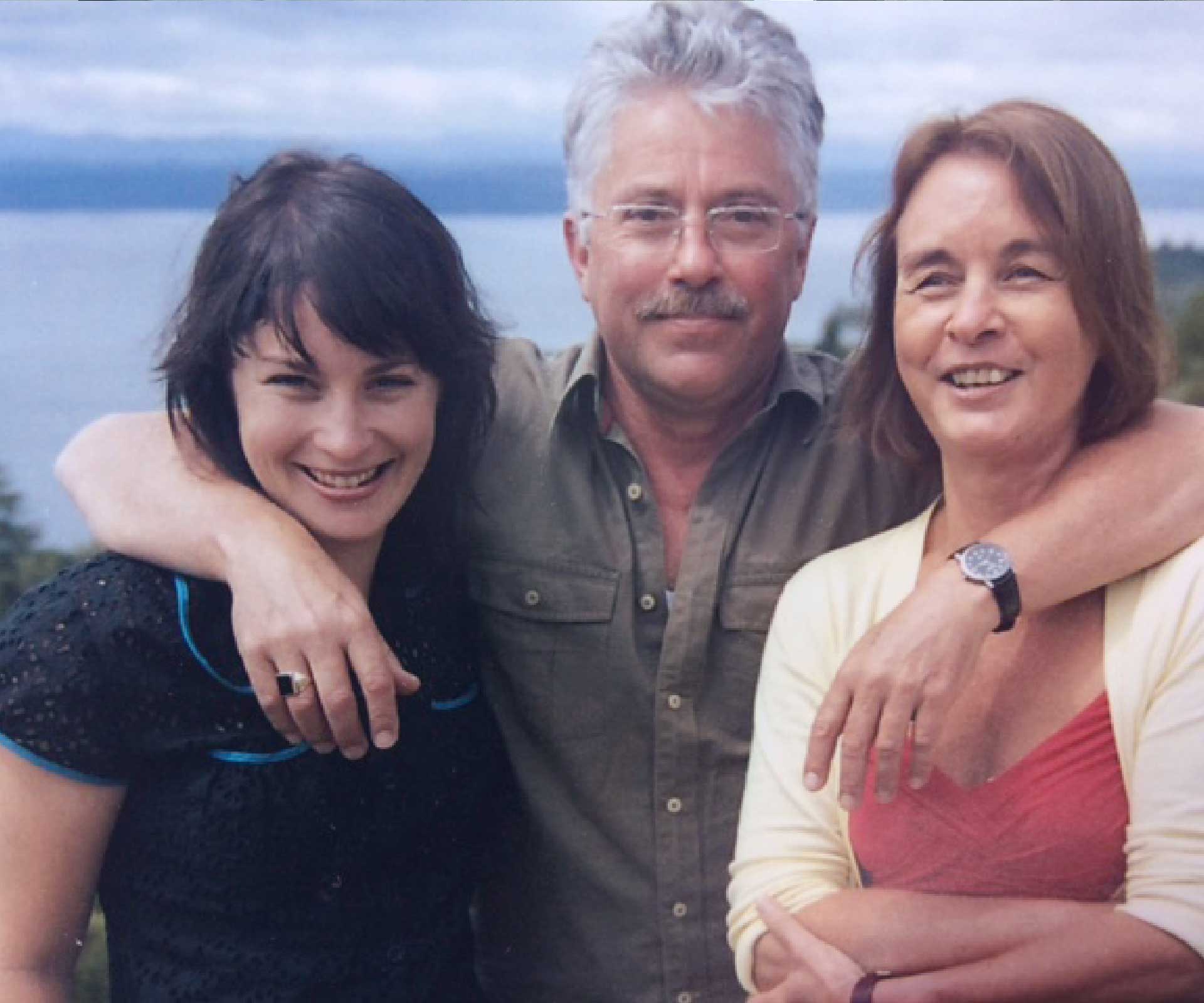
A young Melissa with her parents, Roger and Gill.
Close to a month later, though, test results revealed the tumour was pushing against her heart and there were lesions on her spine. Operating was not an option. The good news was that a funded drug was available for this type of cancer, a cancer found mostly in non-smoking Asian women.
“My grandmother, Nana Peg, is half Chinese. That has been a wee bit of a blessing really, because Mum’s oncologist said, ‘If you want to get a cancer, this is the one to get.’
“She’ll be on this drug until that bastard tumour works out how to get around the medication and starts growing again,” Melissa wrote in her diary on September 26. “That could be anywhere from 12 months. [The oncologist] says if she had normal chemo she’d be lucky to live 12 months.”
Melissa says the drug has meant the family has been able to return to some sense of normality. The medication affects Gill’s skin but mostly she is feeling well.
“I think if she had been going to chemotherapy it would have been a real mental setback. These drugs are amazing, they have shrunk the tumour by half and she used to cough all the time and that is mostly gone. Once the cancer has worked out what to do and grows back, there are probably unfunded drugs she can go on. The advances they are making are quite incredible. She will never be classed as cancer-free but she will get some time.”
Melissa is married to cameraman Dave Pierce, 41 – the pair worked together intensively for two years when Melissa took on the role of TVNZ’s European correspondent in 2006.
“I joke to Dave that we only got married because he was really the only person I saw for two years – and I still kind of liked him so that was fine,” she says with a smile.
The couple travelled widely during that time and were forced to handle stressful situations in war zones like Israel and Palestine. She recalls attending a tense funeral for a Hamas leader where their local aide (a fixer) ordered them to run back to the car.
“By the time we got in the car, it was surrounded by men. They gathered around the car and tried to open my door. I vividly remember Dave leaning over and slamming down the lock. The driver had to show a bit of muscle with them before getting us out of there.
“The night before, the border had closed so we couldn’t get out. I think we’ve been two of only a few TVNZ reporters who have ever stayed in Gaza for a 24-hour period. The building down the road was bombed in the night and it shook our hotel so badly I don’t think I got a minute’s sleep. A totally different life to anything I’ve ever experienced.”
The couple is consequently well prepared to support each other through difficult times in their lives.
“Dave is very solid in those kinds of situations – he knows me. I fly off the handle and get het up and then I will calm down a bit later. He will just entertain the kids while I work it out.”
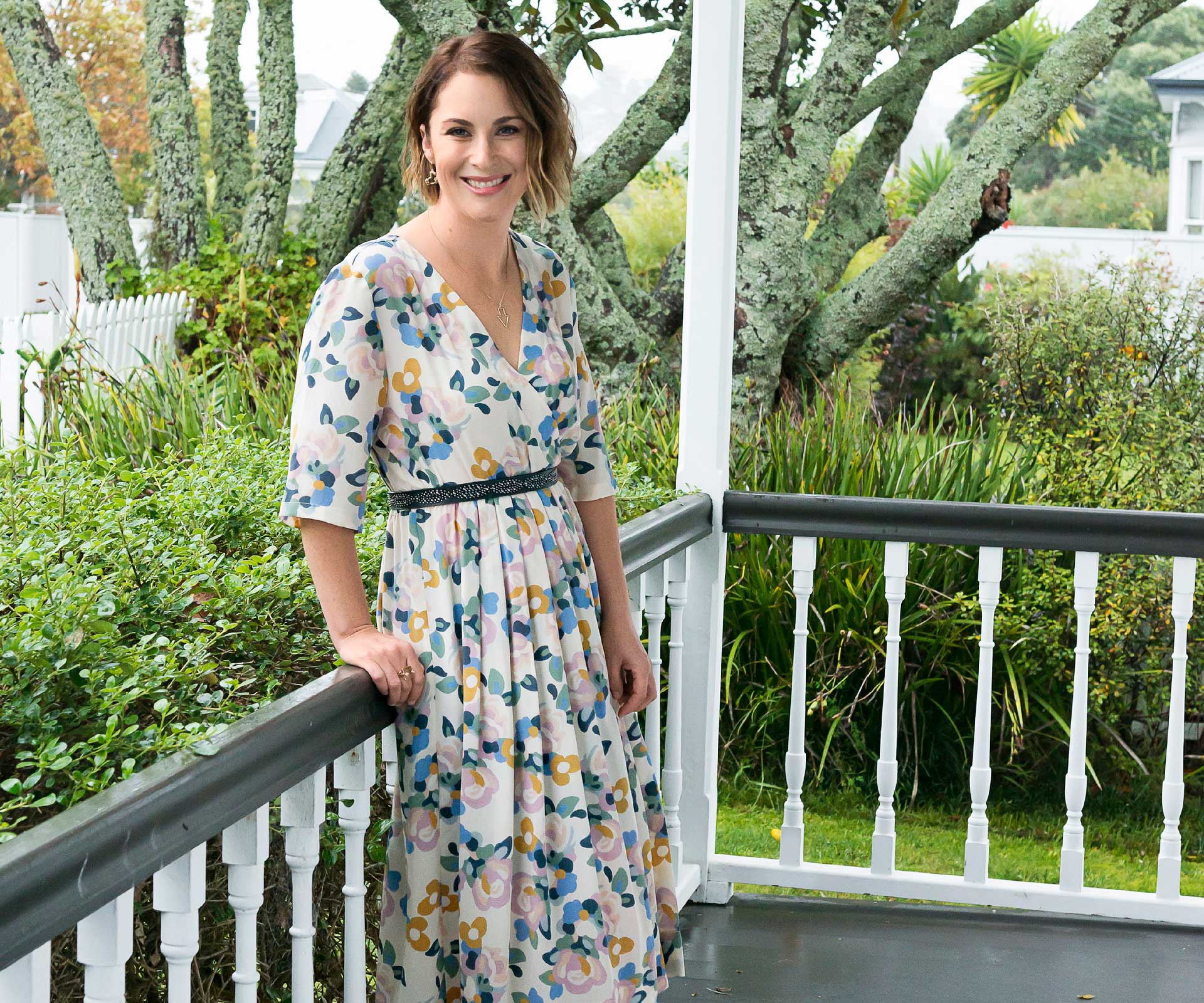
She also has four close girlfriends who called her daily for six weeks after her mum was diagnosed.
“That made me go, ‘Have I been a good enough friend?’ and, ‘Have I been kind enough to others when they’ve told me news like this?’, which made me quite upset. You do just say, ‘I am so sorry to hear that,’ so it made me want to be kinder.”
She says her mum’s illness has changed the way she lives her life in many ways.
“I also want Mum to see me succeed; it is not worth sitting around waiting for something to happen. What this experience has made me think is that I have to make every opportunity count. I don’t want to die wondering and I don’t want Mum to die wondering. I hate all those clichés, but you find they are actually true when something like this happens.”
Melissa’s mother and father now live just a few suburbs away from Melissa and Dave. They moved here a few years ago from Christchurch, where they had lived since Melissa was a teenager. They had planned to leave in 2010 but when the first Christchurch earthquake hit they stayed on for a few more years to support the community. In the rag trade for decades, Gill used to make all Melissa’s clothes.
“She’s an awesome seamstress; she made all my clothes even when I started reporting, until my friends said it had to stop because she was making me matchy-matchy suits!”
Gill is a now a big part of Hugo and Freddie’s daily life. When Melissa works, Gill picks Freddie and Hugo up from daycare and school, and Melissa says she is always calling her mum about domestic conundrums or to tell her stories about the kids.
“She is such a great grandmother. My kids absolutely adore her, she does things with them that I would never do and teaches them stuff I would never think about doing. It is great.”
Melissa’s sister Olivia also moved to the area recently from Melbourne to be near the family. She has two daughters aged one and four; the eldest has epilepsy and a genetic disorder which means she can’t walk or talk.
“Mum is really great at helping with her. Charlotte is the most gorgeous little girl you have ever seen and it breaks your heart. The public health system has been so good to them.”
With two children under five, who were both poor sleepers in their first year, Melissa has welcomed her family’s proximity. The newsroom also became her refuge. There, she had an outlet from the chaos of early parenthood and the TVNZ mums also supported her through reflux and sleep deprivation.
“Wendy Petrie is one of my mother mentors – she gave me all the hand-me-downs, and when Hugo wasn’t sleeping she would come around, wrap him up and stick him into bed! Renee Wright, Toni Street and I all have kids around the same age.”
-and-Hugo.jpg)
Currently, Melissa is working one night a week on Tonight and also picks up news presenting and reporting shifts as they are available. Asked how she feels about the way mothers are treated in the workplace, Melissa says her experience of being a working mum at TVNZ is a good one. She has been able to keep a hand in while parenting her young family and returned to work nine weeks after she had Hugo to do one shift a week. She is, however, irked by the discrimination she sees many women subjected to in New Zealand.
“I have been really lucky, but I think more employers need to be more open to flexible hours or job sharing. There is a whole workforce of women whose power they could harness – imagine that! We need to change the perception that things only happen nine to five. I know so many women who would love to work, but working full-time Monday to Friday is not doable. Also women do need some support to return even on the basic level. How many workplaces do you know that offer a place where a woman can pump breast milk?”
She admits that she misses the excitement of daily work.
“I miss that adrenalin all the time, which is why I love presenting or newsreading, because on live TV anything can happen, and it does. I think that keeps me on edge. I miss it. I miss live crosses and working in the field.
“Rolling news or breaking news is the ultimate for me. I did a three-hour block after the Kaikoura earthquake. That is when I really love the newsroom most because everyone is there trying to get the best work on air to inform the public.”
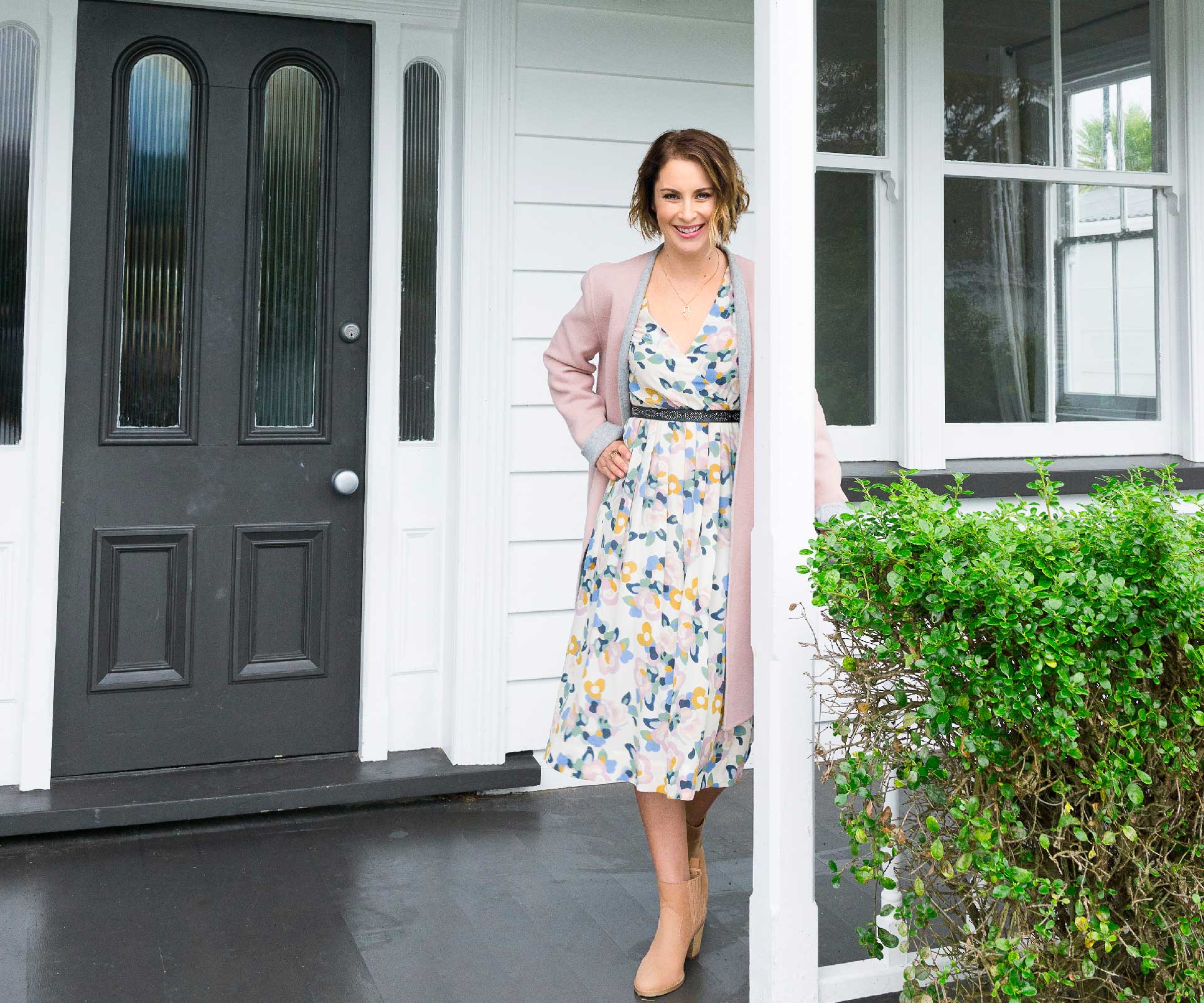
Melissa loves the adrenalin rush of bringing the news to the viewing public and enjoys being able to keep her hand in while bringing up her children.
Asked about her most exhilarating assignments, Melissa immediately cites her time in Israel.
“That was exciting work, being the war correspondent, but I actually really loved the everyday normal stories, like when I went to Gallipoli and met a 100-year-old who remembered the war.”
Melissa says it is telling those stories, and being part of informing the public, that motivates her, whether it is at home or abroad.
“I’ve met such amazing people who have let me tell their stories over the years – we are with people at their highest and lowest. Christchurch was hard because it was my hometown, my parents were there and it took me ages to get hold of them in the hours afterwards, so I landed there still not knowing if they were okay and knowing that parts of Christchurch I adored, like Christmas Eve at the Dux, were gone for ever.
“Seeing Kiwis do well overseas always makes me cry too. Every time we went to the 2007 America’s Cup races in Valencia and saw our boat coming back, I would get tears in my eyes. I remember at the end [of the final race] we were put on the back of the black boat to interview the guys after that gut-wrenching loss – it was so difficult to watch them and at the same time have to interview them about it.”
Melissa says watching the changes in news reporting since she graduated from Christchurch Broadcasting School has been fascinating.
“When I started in Europe in 2006 we used to carry around those huge edit packs – they were 30kg. I remember pushing them through airports and paying hundreds of pounds worth of excess baggage. At the end of it we were doing everything on the laptop. It was amazing to see by the end of those two years how everything had changed.
“I hope I can keep changing and be versatile and keep on keeping on! It’s still a thrill to hear the news music before a bulletin or to share a desk with Simon [Dallow] when Wendy is away. It is something that still gives me a buzz.”
Having a husband in the same industry while she is working part-time has its pros and cons, says Melissa.
“I do get frustrated that he will get some jobs I would really like to have done, but I just have to remember that when he is away he doesn’t get to be with the kids and he misses them.”
For now, Melissa is taking each day as it comes, balancing work with her gorgeous little boys, who are happily smiling for the cameras, knowing there is some new Lego waiting for them to play with. She says while the past year has been a challenge for the Stokes family, she’s taken from it some sound realisations about living every day well.
“I do think it has changed me. It has definitely made me think differently about how I will live my life. I slip back into old habits and then I go, ‘No, reset,’ and the next day I try again.”
